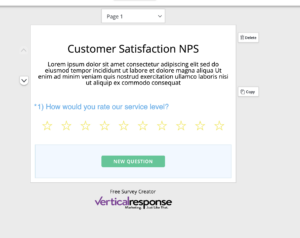
NPS Score: The Key to Boost Your Business Success
In the highly competitive business landscape, savvy marketers or ambitious small business owners are always on the hunt for strategies to elevate customer satisfaction. The ultimate goal? To transform customers into fervent advocates for their brand. The task of accurately measuring customer loyalty and advocacy, however, can often be daunting. This is where the Net Promoter Score (NPS) comes into play. This blog post will take a deep dive into the intricacies of NPS, elucidate its operation, and articulate its undeniable importance for businesses.
What is NPS?
The NPS is a sought-after customer satisfaction metric that gauges the probability of a customer recommending your business to others. At its core, it hinges on one key question: ‘On a scale of 1-10, how likely are you to endorse our business to a friend or colleague?’ Customers who respond with a score of 9 or 10 are hailed as ‘Promoters.’ Those who assign a 7 or 8 are termed ‘Passives,’ while the ones offering a score of 6 or below are designated ‘Detractors.’
NPS in Action: A Snapshot
Let’s envision a scenario. Your company sends out a survey to 200 customers. Out of these, 100 responded. Here’s how they scored:
- 60 customers gave you a 9 or 10 (Promoters)
- 25 customers gave you a 7 or 8 (Passives)
- 15 customers gave you a 6 or below (Detractors)
To compute your NPS, you’ll subtract the percentage of Detractors from the percentage of Promoters. In this case, if 60% of your customers are Promoters and 15% are Detractors, your NPS score is 45 (60-15). It’s important to remember that NPS scores can range from a low of -100 (if every customer is a Detractor) to a high of +100 (if every customer is a Promoter).”
Why Should Your Business Care About NPS?
Net Promoter Score holds paramount importance for your business for several reasons:
- It is a critical measure of customer loyalty and satisfaction: Your NPS score presents a clear picture of how your customers perceive your business and the likelihood of them recommending it to others.
- Serves as a compass pointing to areas for improvement: NPS surveys not only gauge customer sentiment but also encourage customers to provide feedback about their experiences, highlighting potential areas of improvement.
- It’s a tool for tracking progress: By consistently monitoring your NPS scores, you can measure the impact of your business strategies and improvements on customer loyalty and satisfaction.
- Works as a powerful benchmarking device: Your NPS score, when compared to competitors or industry averages, provides a reality check on your business’s standing in the market and signals where you may need to make improvements.
Utilizing VerticalResponse’s Survey Generator
Implementing NPS into your business strategy is streamlined and made effortless by tools like VerticalResponse’s Survey Generator. This intuitive tool allows you to design, send, and analyze NPS surveys, providing invaluable customer insights. It’s an easy way to integrate NPS into your feedback strategy.
In conclusion:
The Net Promoter Score is an insightful, robust metric that can arm your business with valuable insights about your customers’ loyalty and satisfaction levels. Regular tracking and thoughtful response to your NPS scores can reveal areas for improvement, catalyze business growth, and fuel customer loyalty and advocacy. If you haven’t already, it’s high time to embrace NPS surveys in your customer
If you want to learn more about marketing, check out the rest of our blog. If you’re ready to start making content, sign up for a free trial to get the tools you need to make great marketing campaigns, surveys, landing pages, and more!
© 2023, Vertical Response. All rights reserved.




